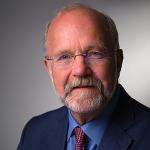A conference fit for 2020 and beyond
From the very beginning, the annual conference has been the flagship event of the Inclusive growth in Mozambique programme, bringing together a global and multidisciplinary research and policy audience and providing a window through which to follow the programme’s progress. While ensuring continuity was challenging in 2020 due to COVID-19, this year became no exception thanks to excellent collaboration between all involved.
The conference ‘Evidence to enhance inclusive growth’ was held online on 2-6 November. Building on an international call for papers launched in March 2020, the programme featured over 40 papers from leading researchers and academics sharing policy-relevant research findings and best practices on policy issues that affect inclusive growth in low-income countries. Topics included poverty and inequality, structural transformation, institutions and governance, education and the labour market, the private sector and employment, gender, climate change, and agriculture.
In the opening session focusing on COVID-19, the Director of UNU-WIDER, Professor Kunal Sen, gave the keynote on what we have learnt so far about the economic effects of the pandemic in the Global South, getting the event off to an excellent start. Across the twelve thematic sessions making up the rest of the programme, all presenters paid particular attention to link with the Mozambican context, and two of the sessions were entirely dedicated to Mozambican topics and held in Portuguese. Presenters at these sessions included researchers and analysts from IGM partner institutions and universities in and outside Mozambique. Moreover, a special session was dedicated to presenting and discussing insights from the Mozambique Institutional Diagnostic (MID) study, which launched in a special policy forum on 4 November.
Participation was very active from beginning to end, with the opening session and the sessions on poverty and inequality and on structural transformation proving the most popular. The research under the two latter themes are illustrative of the diverse facets of inclusive growth and the conference’s focus as a whole.
Poverty and inequality were examined through topics such as inequality in child health, income inequality and economic growth, and financial inclusion and inequality, as well as new ways to measure resilience to natural disasters. The research gave a snapshot of various angles on evidence and arguments, such as the following:
- Measures of inequality of opportunity, such as parental wealth and education, play an important part in child malnutrition outcomes, suggesting intergenerational transmission of inequality. In the case of Sudan, for example, these disadvantages are exacerbated in conflict-affected areas.
- At the macro level, sub-Saharan African countries show patterns of growth-induced inequality, and institutional quality plays an important role in mediating this effect. It is critical to consider policies that ensure growth is inclusive.
- Satellite imagery is a promising new approach for assessing vulnerability, with initial wealth appearing to have a role in determining household vulnerability, for example through the strength of housing structures. The emerging data can be used to design emergency responses and policies to increase resilience and reconstruction investments that more effectively target those who are most vulnerable.
- Mobile money significantly contributes to poverty reduction. Insights from Kenya reveal that mobile money provides cheap services, enables savings, and increases access to small informal loans especially for poorer people who struggle for access through formal channels. Additionally, households invest accrued savings in education, thus contributing also to long-run human capital growth.
On structural transformation, the conference’s papers presented a wide range of findings on low-income economies, with agricultural productivity and industrial development brought to focus in discussing a path to inclusive development especially in sub-Saharan Africa. For example:
- Economies in sub-Saharan Africa underinvest in local agricultural research and development for both political and economic reasons, including that benefits take a long time to build up.
- Sluggish structural change is an important factor in explaining the lagging fertility transition in sub-Saharan Africa. Recommended policy actions include boosting industrialization, investing in education and labour market reforms that increase women’s participation in the workforce, and expanding access to formal insurance.
- Social protection programmes in Asia stimulate the rural economy and cushion the negative impacts of extreme temperature on agricultural growth.
- It is possible to assess Mozambique’s current industrial policy by combining supply-side and demand-side analyses. When doing so, a new set of proposed priority sectors include machinery and electronics, and vehicles and transport equipment.
The 2020 annual conference of the Inclusive growth in Mozambique programme became a truly remarkable event implemented under most challenging circumstances. Participants represented all of the programme’s target audiences, in Mozambique and internationally – universities and research institutions, government bodies, civil society organizations, development cooperation partners, and UN agencies all took part in the event and its conversations. While we are proud to have been able to adjust to the logistical challenges posed by COVID-19, and happy for all the positive feedback we have received, we also look forward to future annual conferences where we can once again welcome you, meet you, and discuss face to face.
The views expressed in this piece are those of the author(s), and do not necessarily reflect the views of the Institute or the United Nations University, nor the programme/project donors.


